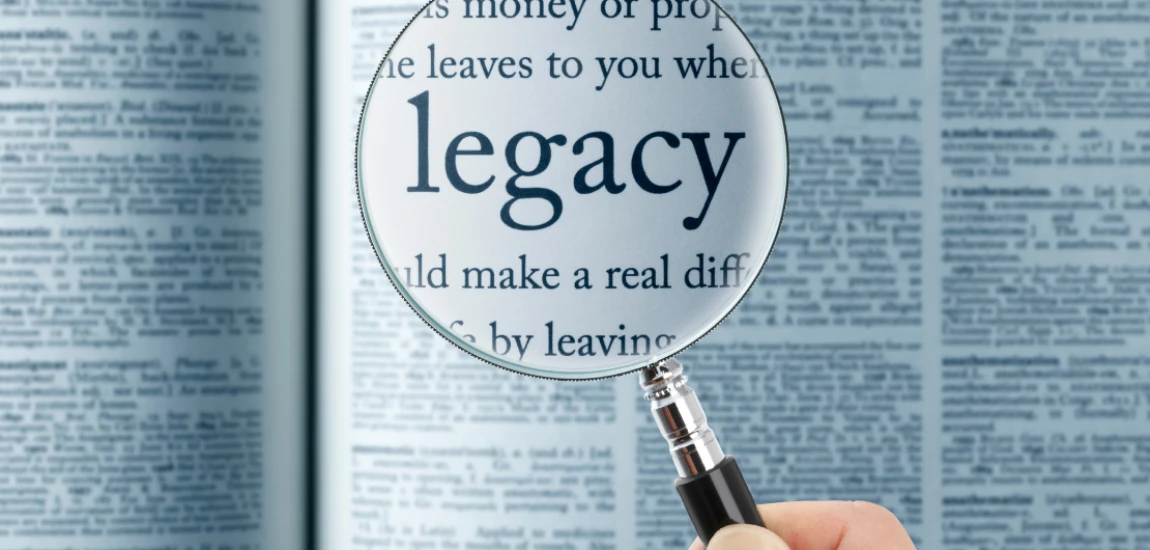Digital Legacy: What Happens to Your Data After You Die?

In an era where much of our identity exists online, the concept of digital legacy has become more relevant than ever. Our digital lives extend far beyond social media. They include everything from emails, cloud storage, and online banking to cryptocurrency wallets and personal websites. But what happens to this digital footprint when we die? Unlike physical possessions, which can be passed down through wills or inheritance laws, our digital assets exist in a complex legal and ethical gray area.
Digital legacy is not just about the content we leave behind—it’s about control, privacy, and the emotional impact on loved ones. Family members are often left struggling to access or manage accounts, especially when companies have strict privacy policies. For instance, while Facebook offers a “memorialization” option, other platforms may lock or permanently delete accounts upon death. In some cases, valuable digital assets—such as cryptocurrency keys or online business accounts—are lost forever if no plan is in place.
This issue raises pressing questions: Who owns our data after we die? Should loved ones have automatic access? How can we ensure our wishes are respected? Addressing these challenges requires a blend of digital estate planning, legal frameworks, and personal responsibility.
As we move deeper into the digital age, thinking about what happens to our online selves is no longer optional. It is part of a modern legacy, as important as a traditional will. By understanding the implications of digital death, we can prepare for a future where our online presence continues to matter long after we’re gone.
The Growing Digital Footprint: More Than Just Social Media
Many people associate their digital legacy only with social media profiles, but the reality is far more expansive. The average person today generates thousands of digital records, from everyday interactions to sensitive financial data. Every online purchase, search query, and uploaded photo contributes to what experts call our digital footprint—a vast archive of personal information scattered across platforms.
Think about your own online presence: email accounts, streaming subscriptions, smart home apps, cloud-based documents, fitness trackers, dating profiles, digital photo albums, or even the playlists you carefully curate. Each of these leaves behind a trace, forming a unique digital identity that persists beyond physical life. Some of these assets, like cryptocurrency wallets or online businesses, have tangible monetary value. Others, such as emails, messages, or photos, hold deep sentimental worth for families and friends.
The growth of cloud storage has only amplified the scale of digital legacies. Unlike physical letters or printed photos, digital files don’t naturally degrade. They remain preserved indefinitely—unless deleted. That means your digital persona could, in theory, exist forever, creating new ethical questions about permanence, consent, and memory.
At the same time, organizations use this data for profit. Tech giants often control the terms of access, which means that after death, family members may struggle to recover information. In some cases, accounts are locked due to privacy laws, even if loved ones simply want to retrieve treasured photos or messages. This highlights why planning for your digital footprint is as important as planning for physical assets.
Our digital selves have become extensions of who we are. They influence how people remember us, how companies treat our information, and how history records our existence. By recognizing the size and significance of our digital footprint, we can take proactive steps to shape our legacy with intention.

Legal and Ethical Dilemmas of Digital Death
One of the biggest challenges surrounding digital legacy after death lies in the legal and ethical gray areas of ownership. Unlike physical property, digital assets often come with complex terms of service agreements that restrict transferability. For instance, many online accounts are technically “licensed” to users rather than “owned.” This means you don’t truly own your email account or music library—you only borrow access during your lifetime.
Legally, different jurisdictions handle digital inheritance differently. In the U.S., the Revised Uniform Fiduciary Access to Digital Assets Act (RUFADAA) provides some guidelines, allowing executors to manage digital accounts with prior consent. But this law is not universal, and many countries have no clear framework at all. That leaves grieving families in difficult positions, where they may need court orders to access a deceased person’s online information.
Ethically, the situation is even more complicated. Should families have unrestricted access to a loved one’s private messages or search history? What if the deceased intentionally wanted those communications to remain private? On the other hand, blocking access can mean losing valuable memories or critical financial details. The balance between privacy and preservation is delicate, and tech companies often err on the side of privacy to avoid liability.
Another ethical dilemma is the commodification of data. Even after death, your data may continue generating value for corporations through algorithms, targeted advertising, or AI training models. Is it ethical for companies to profit from digital remains without consent? Some argue for digital dignity laws, granting individuals posthumous control over how their data is used.
Ultimately, these dilemmas illustrate the urgent need for clearer laws and stronger user rights. Without them, digital death remains a messy and often painful process for families navigating grief in an increasingly online world.

Planning Your Digital Afterlife: Practical Steps You Can Take
The good news is that individuals can take proactive measures to manage their digital afterlife. Just as we prepare wills and estate plans for our physical assets, creating a digital estate plan ensures that our online presence is handled according to our wishes.
The first step is to take inventory of your digital footprint. Make a list of your accounts, including email, social media, financial services, cloud storage, and subscriptions. Don’t forget cryptocurrency wallets, domain names, or online business accounts that might hold financial value. Documenting these accounts ensures nothing is overlooked.
Next, decide what should happen to each account. Do you want your social media profiles memorialized, deleted, or handed to a family member? Platforms like Facebook and Instagram allow you to designate “legacy contacts” who can manage your profile after death. Google’s Inactive Account Manager lets you choose trusted individuals to access your account if it becomes inactive for a set period.
It’s also essential to secure your login information. While you shouldn’t share passwords casually, you can store them in a password manager with emergency access features or leave them with a trusted attorney as part of your estate plan. This prevents loved ones from losing access to important files or funds.
Consider writing a digital will that specifies your wishes regarding your online data. Some jurisdictions recognize these as legally binding, while in others they serve as guiding documents. Either way, they provide clarity and reduce family disputes during an already emotional time.
Finally, think about your digital memory. Do you want certain messages, videos, or photos preserved as part of your legacy? Some people create digital archives or time capsules for loved ones. Others use services that generate posthumous messages or memorial websites.
Planning your digital afterlife is an act of care. It spares your loved ones from confusion and ensures your digital presence reflects the values you hold in life.





